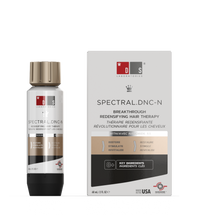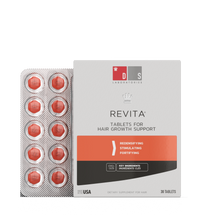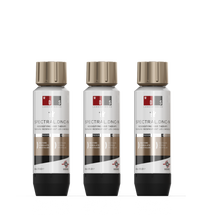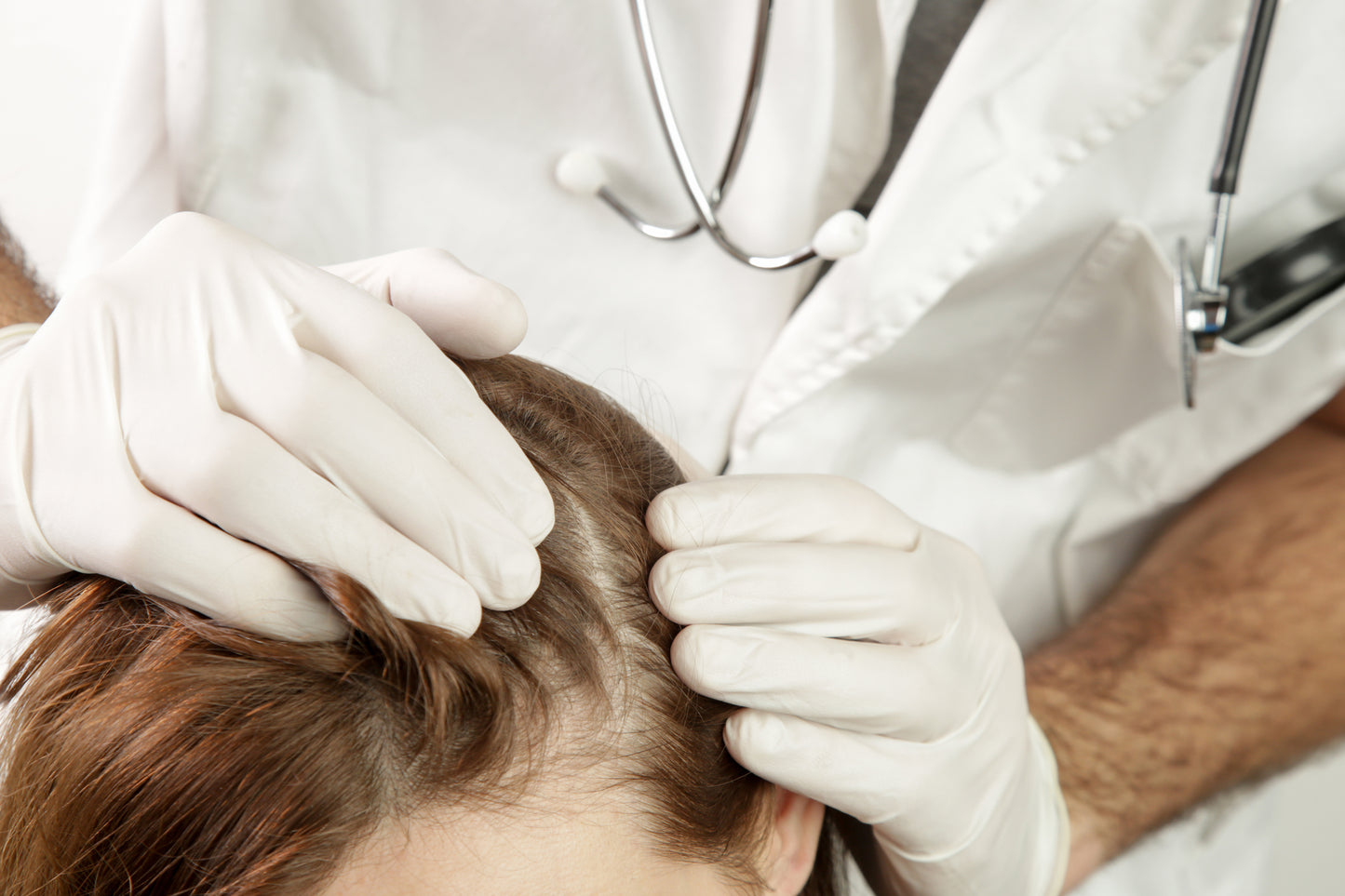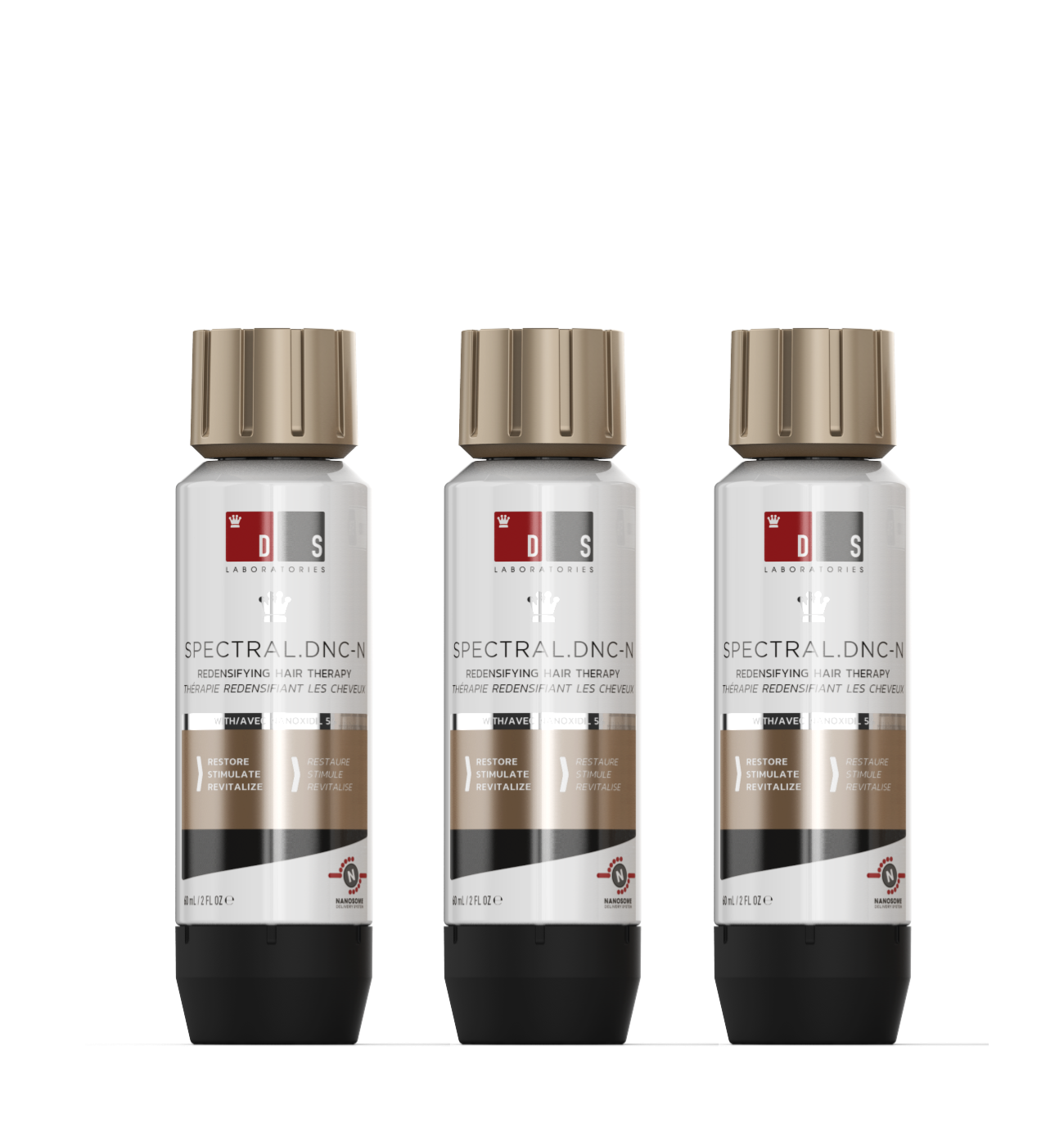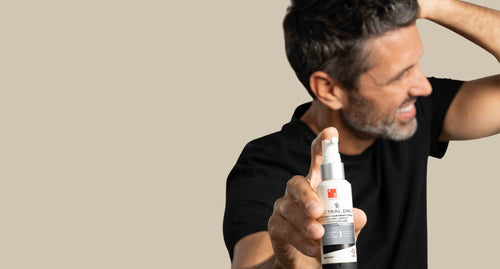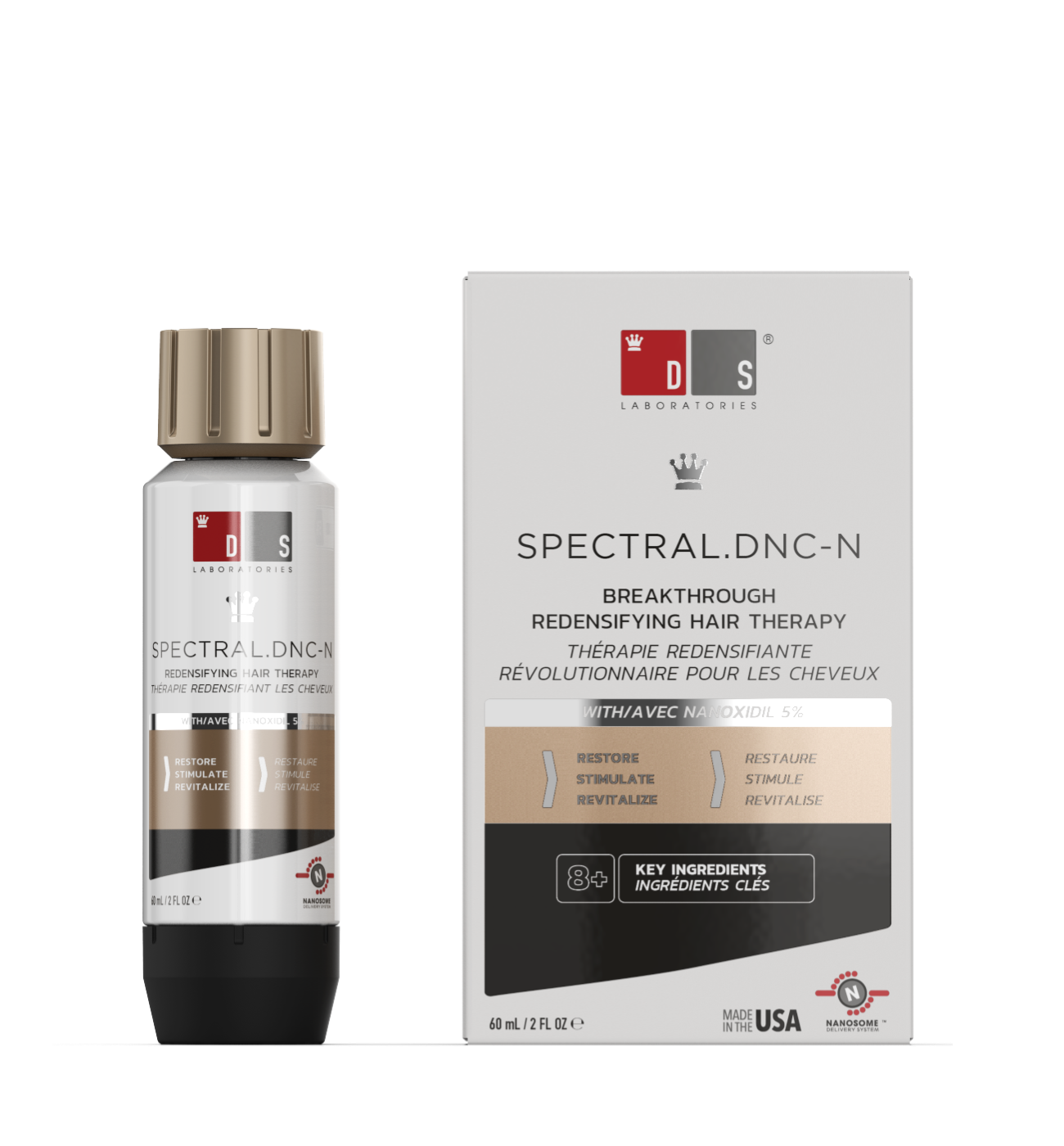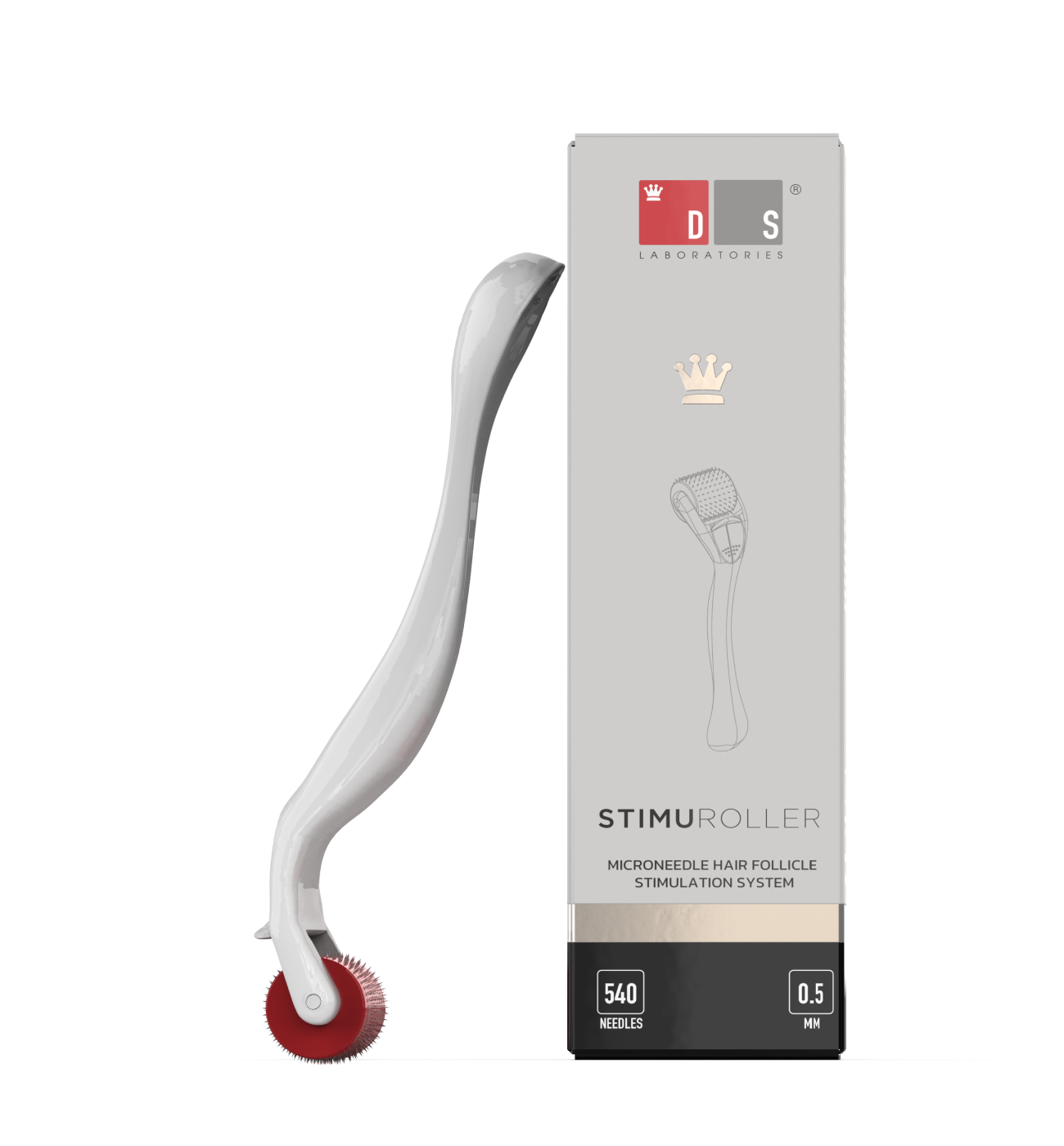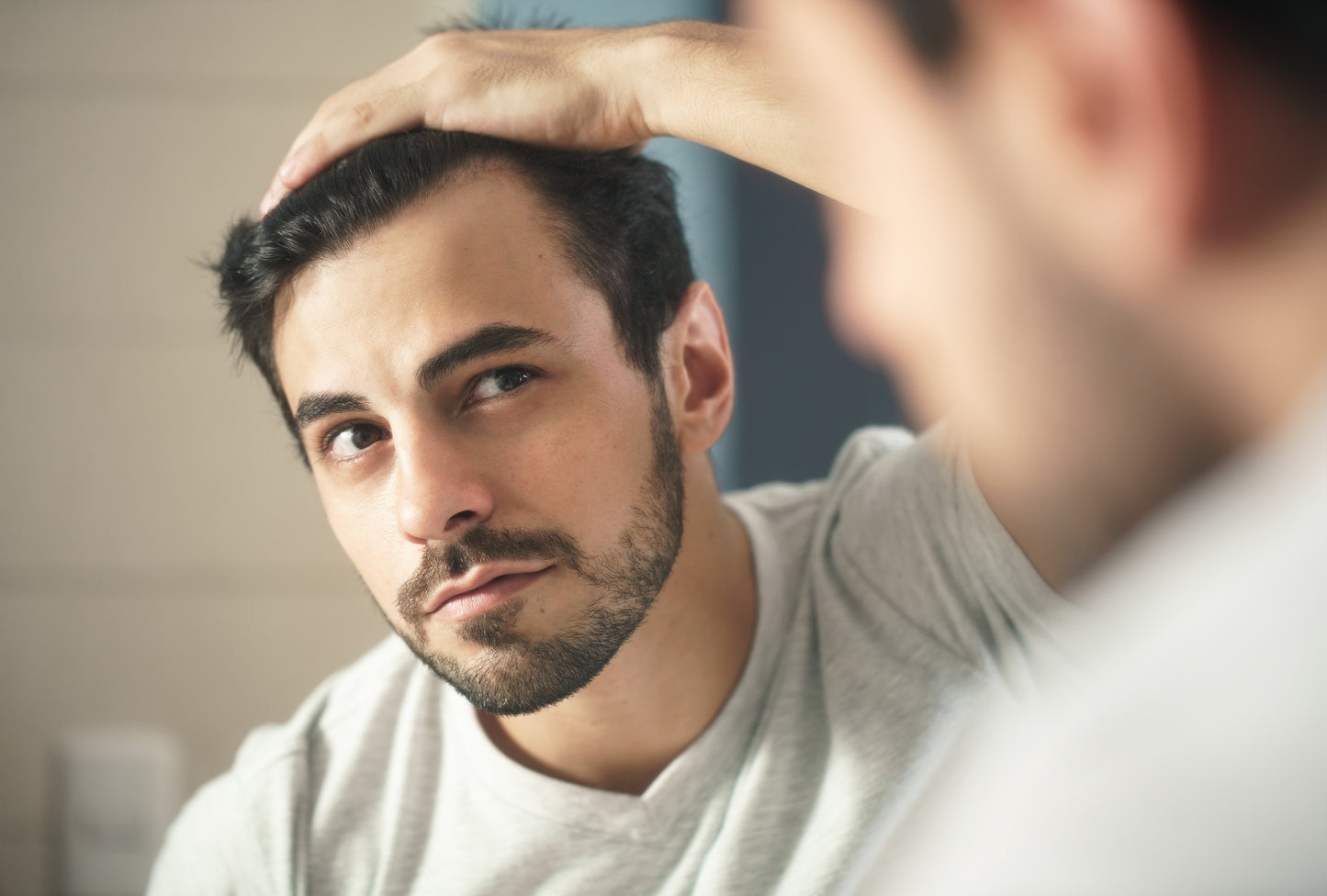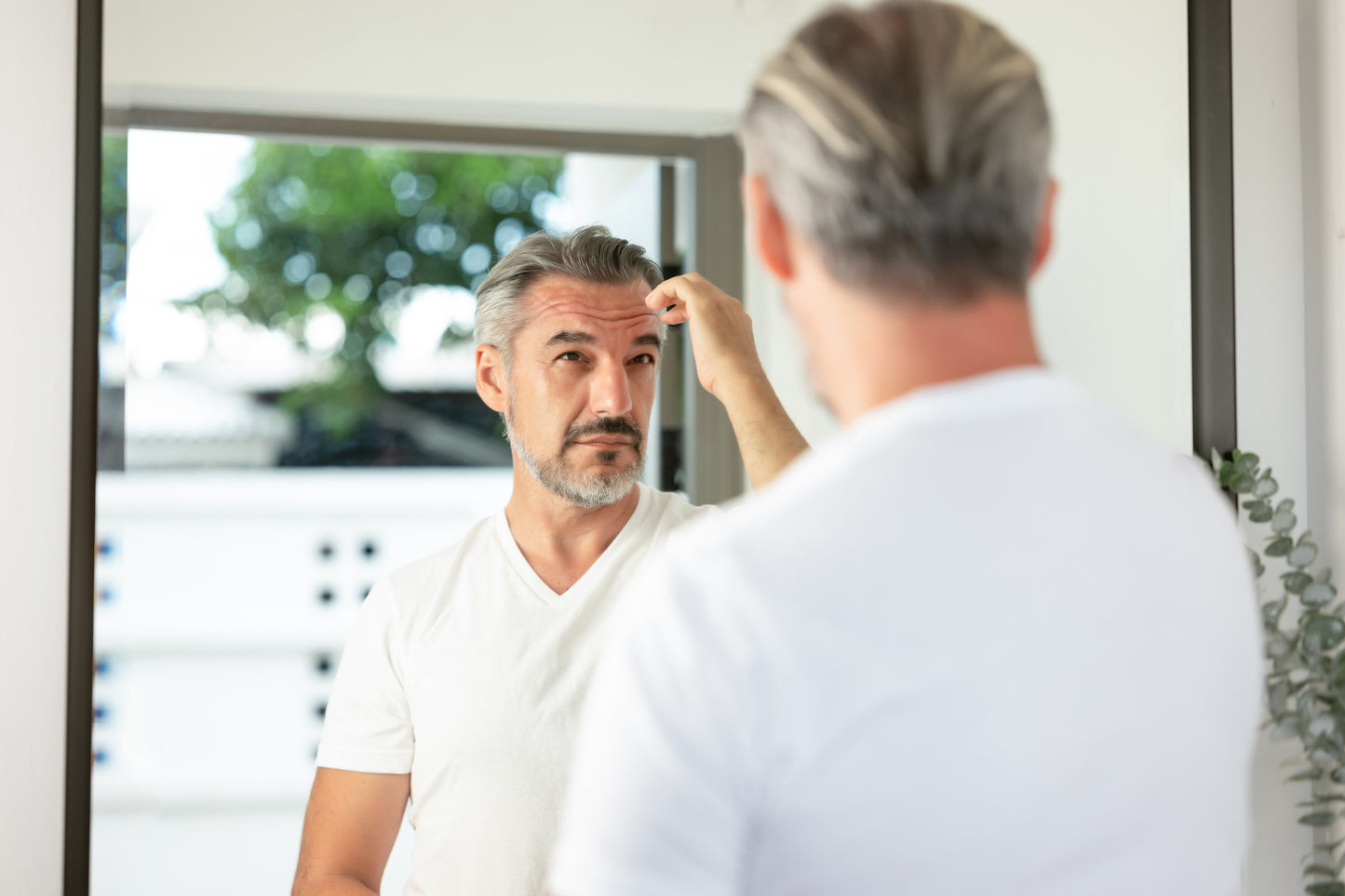Wondering if your hair loss is a side effect of the Zoloft you’re on?
You’ve come to the right place.
While effective at treating depression and other health conditions, Zoloft can cause some unwanted side effects too. Thankfully, there are plenty of ways to minimize these side effects.
In this article, we’ll talk about the drug Zoloft, how to know if it’s causing hair loss, and ways you can make its side effects less severe.
What Is Zoloft?
Zoloft is the brand name of an antidepressant medication called sertraline. It helps block the reabsorption of serotonin in the brain to increase serotonin levels.
More serotonin in our circulation means more feel-good hormones and thus better moods.
Sertraline is used in the treatment of depression, panic attacks, obsessive-compulsive disorder (OCD), post-traumatic stress disorder (PTSD), social anxiety disorder, premature ejaculation, and a form of premenstrual syndrome.
While it is a safe drug, sertraline or Zoloft can cause side effects such as nausea, dry mouth, headaches, restlessness, diarrhea, and sexual dysfunction.
Does Zoloft Cause Hair Loss?
Although uncommon, Zoloft or sertraline can cause temporary hair loss during treatment.
All antidepressants come with certain side effects and hair loss is a common one.
Known as telogen effluvium, this type of hair loss occurs when your body undergoes stress. This stress can range from childbirth to surgery and poor diet, or in this case — medication.
These medications can alter the hormonal levels in your body, affecting your hair’s natural growth cycle. They cause your hair follicles to enter the resting stage prematurely which leads to shedding.
Another way antidepressants can affect hair is by changing its structure and/or color.
All these side effects typically take 15 days to 3 months to show up.
How Do You Know if Your Hair Loss Is Caused by Zoloft?
Your doctor can confirm if you’re suffering from pathological hair loss. It involves a hair pull test where the physician tries to pull a lock of hair and counts the strands that detach from the scalp. If the percentage is greater than 10%, active hair loss is confirmed.
Note, however, that there are no ways to confirm whether the drug Zoloft is causing hair loss. The next best option is to eliminate other possible causes.
If no other causes present themselves and if the hair loss seems to have started in the three-month window after starting Zoloft, then Zoloft might be the possible cause.
Ways to Treat Hair Loss Caused by Zoloft
The good news is Zoloft’s side effects are only temporary and will wear off within six months once you stop the medication. But stopping medication will stop your treatment and it will take a while to complete the entire course. Most likely, you’ll want to stop losing so much hair before that.
Here are some options you can try:
Consult Your Healthcare Practitioner
If your hair loss is a side effect of your Zoloft medication, you’ll need something to counteract the hair loss. But the problem with taking more medication is they may interfere with your antidepressants.
Your healthcare practitioner can suggest hair loss solutions that don’t interfere with Zoloft. They can also help you monitor existing side effects and emerging ones.
In some cases, your doctor may change your dosage, medication, or treatment. But that’s only when the side effects are too difficult to manage.
Whatever you do, your first course of action should always include talking to your healthcare practitioner.
Try a Hair Loss Shampoo
A hair loss repair shampoo can help support your scalp’s health so you experience more hair growth and thicker strands. When your hair is healthy, it’s less likely to fall off due to medications.
Take Supplements
Nutritional deficiencies can impact the rate at which you experience hair loss. Essential nutrients like vitamin D and biotin can significantly affect hair health.
You can consult your medical practitioner and take a nutrient deficiency test before taking this route. It will help you know which supplement you need to take and for how long.
If you find yourself deficient in biotin and vitamin D, consider taking a single supplement with both nutrients.
In addition, you may also want to consider a healthy nutrient-dense diet during treatment.
Stop Smoking
While smoking doesn’t increase hair loss when combined with Zoloft, it doesn’t stop it either.
Research suggests that smoking can increase damage to your hair follicles’ DNA. This can cause hair loss or weaken the hair to the point that they shed.
You can try to stop smoking when you’re taking Zoloft to minimize side effects like hair loss.
Takeaway
While certain antidepressants cause hair loss, the side effect is often not due to grave health concerns. Of course, it’s distressing when your hair sheds, especially if you’re losing a lot of strands each day. Since it’s ill-advised to stop taking Zoloft unless your doctor recommends it, try our tips to make your hair healthy, strong, and less prone to shedding.


